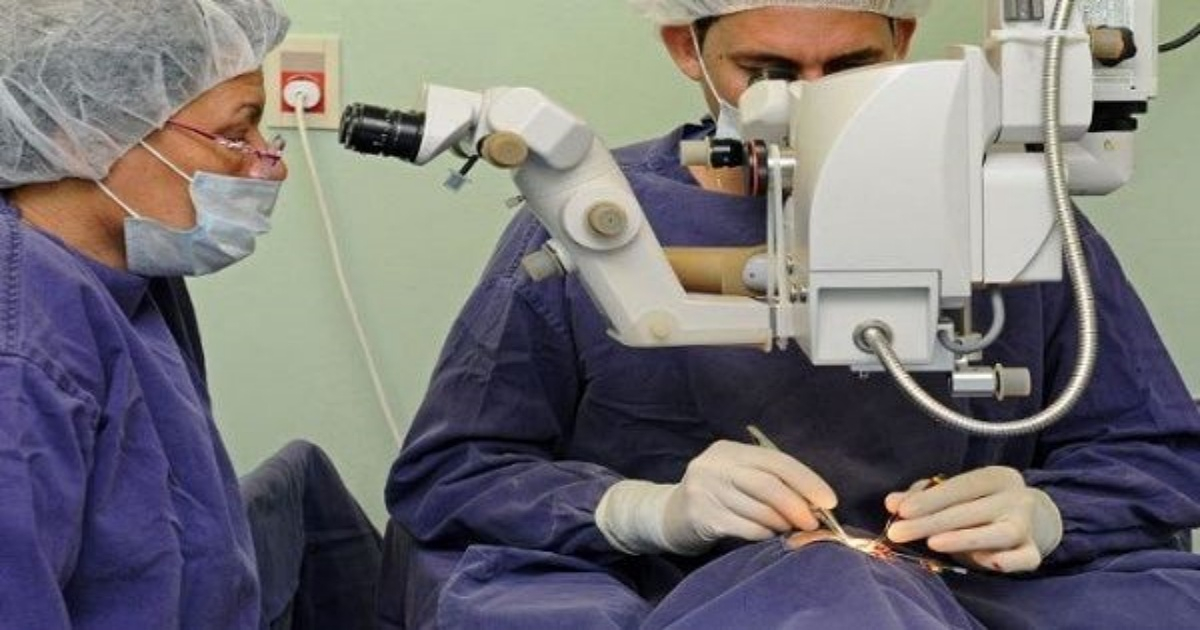
Of theCuban doctors were disqualified by health authorities ofUruguay for practicing the profession without yet revalidating his credentials, according to local media.
The Uruguayan Ministry of Public Health detected the case of the specialistsOney Ramirez, who has served since 2021 as head of the Anesthesiology service at the Specialized Eye Hospital, located at the Saint Bois Hospital, in Montevideo, andOrestes Mariño, an ophthalmologist at the same hospital, the Uruguayan newspaper reported this WednesdayThe country.
In 2013, Dr. Mariño was the head of the brigade of Cuban doctors that participated in “Operation Miracle”, which treated more than 100,000 patients with vision problems in that country for 15 years.
The Cubans did not complete the guidelines to practice as specialists in that country, where a maximum period of four years is given to revalidate credentials as specialists, according to the aforementioned media.
The report also clarifies that doctors will not be able to work as specialists, although they will be able to work as general practitioners. Even Dr. Ramírez will be able to continue as chief, since the position does not require being a specialist.
In Uruguay, Cuban and Venezuelan doctors are those with the highest requests for revalidation in Medicine between 2017 and 2022, according to the Graduate School.
In those years, 349 revalidations were granted to Cubans and 165 to Venezuelans, according to the school source.
In February of this year, Cuban doctors asked in a letter addressed to the president of Uruguay, Luis Lacalle Pou, thatwill accelerate the revalidation of university degreesto be able to practice their profession in that country.
"Many of us We have been waiting for more than six monthsof a process of revalidation of our professional titles as doctors by first the UDELAR [University of the Republic] and then, due to a change that has been made in the process by the Ministry of Education and Culture, has delayed the possibility of add new doctors and specialists to the health system,” they expressed in the document, published on that occasion on the Evolución Médica Twitter account.
The letter, dated January 30 and signed by the Cubans, also included the signature of Mexican, Venezuelan, Haitian and Colombian doctors, a total of 138 who asked Lacalle to accelerate their revalidation process, as revealed in the document.
The doctors, legally based in Uruguay, stated that streamlining the procedures would be for the benefit of society because they, the undersigned, are “in the greatest willingness to provide medical care in places where their government needs us,” while the Ministry of Education and Culture (MEC) decides and reviews each process to revalidate their titles as Doctor of Medicine in the Eastern Republic of Uruguay.
In its response, the MEC, the body that took charge of these procedures since July, said that the procedures were now faster than when they corresponded to UDELAR, but in half a year the doctors have not received a response, as revealed in a note fromMontevideo Portal.
Cuban doctor Anabel Oduardo, one of the signatories of the letter, expressed to that medium that some of them are general practitioners and other specialists “all with complete documentation that was sent to the MEC,” but the only response they receive indicates that they have not yet There is a certain time to complete the revalidation process.
“What we ask is that they enable us or while our future is decided with the revalidation, they allow us to work in inland areas where there are no doctors at this time. There is no medical coverage. We have information from several inland places with populations of less than 5,000 inhabitants where there are no doctors. We are not asking to be given a title, what we want is to be allowed to work in areas where there are no doctors,” said Oduardo.
Uruguay, one of the destinations for Cubans seeking to leave the country to escape the general crisis, received last yearthousands of migrants from that Caribbean nation.
A few months ago, non-governmental organizations from the United States urged the government of Uruguay to protect the rights ofCuban workers who fulfill a medical mission in that country.
In a letter sent to Luis Lacalle Pou, they recalled the violations of the labor rights of doctors and health workers who have worked since 2007 under conditions of questionable transparency and adherence to international conventions.
The government of that South American country canceled a few years agoa health contract with Cubadue to the failures of the Cuban side with the planned number of specialists and the training that they had to provide to train specialists in the country.
What do you think?
COMMENTFiled in: